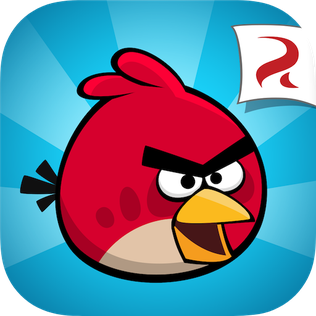There comes a time when it’s too late to tell people how you feel.
There will come a day when the person you mean to talk to won’t be there. Don’t wait for that day.
“There’s always tomorrow” isn’t always true.
The no-pants guide to spending, saving, and thriving in the real world.
I once worked for a company that was so confused that, not only did I not meet my last immediate supervisor for 6 months, but he didn’t know what I did or who I supported. He was my supervisor on paper for payroll and organizational purposes only.

Does your boss know what you do?
More recently, I was called into my current boss’s office to get scolded for low productivity since I don’t produce as much as the other programmers.
That’s not my favorite thing to do in the afternoon. I’d rather spend the afternoon playing Angry Birds improving our software.
In response, I spent the week logging my time. Before I left on Friday, I sent my boss an email that started out with:
When we spoke on Monday, you compared my productivity unfavorably to the other developers. I don’t think that’s a fair comparison as I do more categories of tasks than the others. I don’t think you realize how many additional responsibilities I’ve taken on over the years.
I continued from there with a summary of each day’s work last week. The short version is that, while being productive, I spend less than half of my time on my primary job function because I’ve slowly taken on a managerial role.
I’m on vacation this week, so it will be a few days before I find out if my email will make a difference.
Now, this scolding was my fault. I know I spend my day doing much more than just writing code. I’ve told my boss that before, but I’ve never made sure he understands the scale of the extra work, and I’ve never proven it with a detailed log.
This was poor personal marketing.
In the future, I have to make sure that I keep him in the loop with a summary of the extra work I do, like the training, product demos, sales calls, and estimates I’m involved in.
We’ll see how well that works.
How would you handle a situation like this? Daily emails? Whining? Kicking a garbage can across the room?

Mariano Rivera is the most dominant closer in the history of baseball. His cut fastball, or cutter, is considered by many to be the best pitch in the history of the game. He is the all-time saves leader, and he has five World Series rings that he can wear. Of course, he has made millions of dollars over his professional career, which has brought him a long way from his humble roots as the son of a Panamanian fisherman.
Instead, Rivera and his friends would play games with tree branches for bats. They used milk cartons instead of gloves, and they taped together pieces of old fishing nets to use as balls. Rivera didn’t have his first real leather baseball glove until his dad bought him one at the age of 12.
Rivera liked baseball, but he never thought he would one day make a living at it. Instead, he dreamed of playing soccer professionally like most Latinos. However, he suffered a series of ankle injuries during high school that shattered this dream. He finished school at age 16 and began working on his father’s fishing boat. He had to abandon ship when the boat capsized, and that scared him away from fishing forever.
Soon after that, Rivera started playing on a local amateur baseball team, Panama Oeste. He was the team’s shortstop, and he only started pitching because the team’s normal pitcher was in a slump. His teammates were so impressed with his pitching skills that they convinced the Panama scout for the New York Yankees to give him a tryout. Rivera went to Panama City for a Yankees tryout camp, and the Yankees signed the man who would become one of the greatest players of all-time to a contract worth just $3,000.
When Rivera came to the United States, he did not speak English and was incredibly homesick. Puerto Caimito did not have telephone service at that time, which meant Rivera could only communicate to his family back home by writing long letters.
Rivera made steady progress through the minor leagues, but it was still five years before he was called up to the big leagues. His first few years in the major leagues, Rivera made the minimum salary of $750,000. This is a small figure by American standards, but it is more money than most people in Panama can dream of.
Rivera still goes back to Panama every year. He feels it is a home and that he is a part of it. His riches have never transformed him into a diva. He is one of the most down-to-earth and genuinely friendly players in the game.